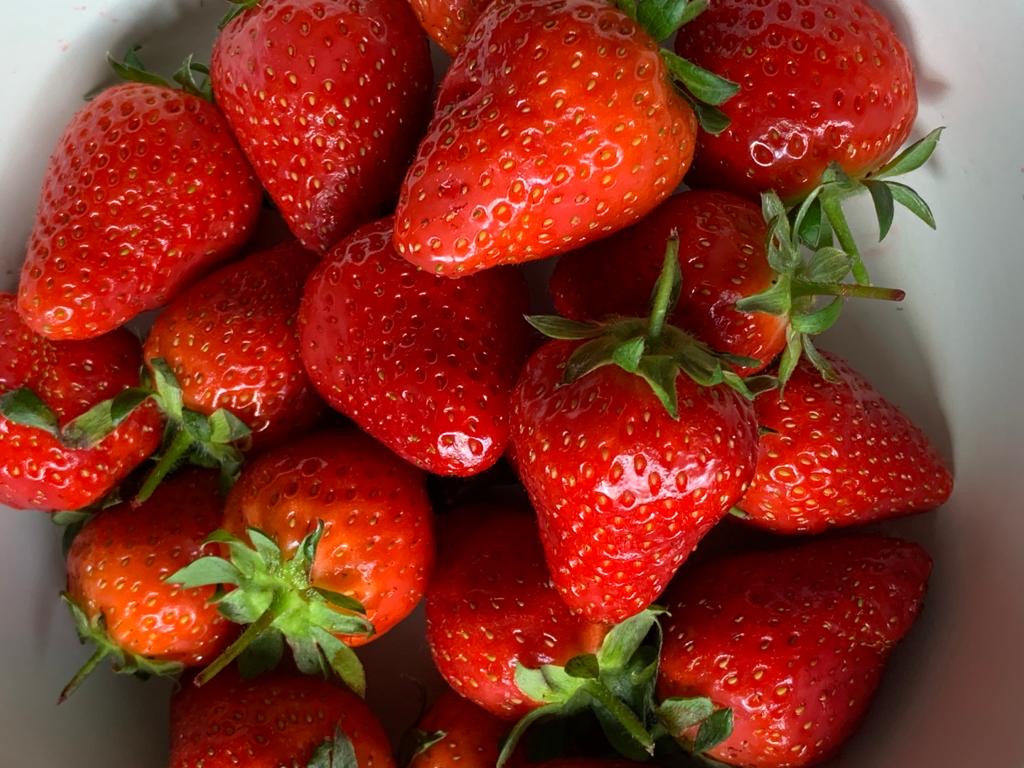Vitamin C, or you may see it written as ascorbic acid, is an important micronutrient for humans. It is a water soluble vitamin that can be found in many foods. Many animals can make their own vitamin C but humans are unable to do so and must acquire it from their diets(1)
The functions of vitamin C include:
- helps to produce collagen (an important protein which aids in wound healing)
- has antioxidant properties
- increase absorption of iron from plant sources(2)
- supports your immune system
Some studies have shown that high intakes of vitamin C could lower your risk of developing chronic diseases, such as cancer and heart disease(1). However, the reduced risk of developing a chronic illness may be down to eating an all round healthy diet and not purely because of vitamin C.
How much Vitamin C do I need per day?(3)
Children aged 1-18 years : 30-40 mg/day
Adults 19+ years : 40mg/day
Can I take too much vitamin C?(4)
Yes, taking more than 1000 mg a day can have a negative impact and lead to side effects such as:
- diarrhoea
- abdominal cramping
- nausea
Should I take vitamin C supplements?
I like to take a food first approach, and 40mg can easily come from your diet. Make sure to include a fruit or vegetable with every meal. Take a look at the list below of foods that contain high amounts of vitamin C.
A lot of vitamin C supplements contain high doses of the stuff and at 400mg our bodies opt to pee it out(4).
If you are in the at risk group of vitamin C deficiency taking a careful look at your diet and seeing where you could add more fruits and veggies is a good way to increase your vitamin C. If you are concerned consult with your doctor before starting supplementation.
But for the general population, a vitamin C supplement is not necessary.
Will Vitamin C boost my immune system?
No one food or vitamin can boost your immune system.
One study found that in those who participated in extreme activity, taking a 200mg dose of vitamin C reduced there risk of getting sick. But for the general population this would have no effect. Some studies suggest taking 200mg of vitamin C could shorten the length of time you suffered from the cold(5). However, these were small studies and they concluded it was not necessary to take vitamin C supplements.
Vitamin C Deficiency
Not getting enough vitamin c in your diet can lead to scurvy. This is usually caused after not eating enough vitamin C for at least 3 months(6). This disease can be seen alongside other nutritional deficiencies and symptoms can overlap. However, it is easily fixed by increasing the vitamin C in your diet.
Symptoms of scurvy include – loss of appetite, swollen joints, mood changes, fatigue/ muscle pain, spontaneous bleeding
At risk groups for vitamin C deficiency include(7):
- smokers – it has been recommended that if you smoke you may require 35mg of vitamin C more than non-smokers
- very restricted diet/ people with eating disorder – can lead to malnutrition
- those with chronic illnesses and malabsorption
If you feel that you are nutritionally deficient or are worried about your diet and health, consult with your GP.
Sources of Vitamin C
Traditionally, when we talk about vitamin C our minds go straight to oranges, but this isn’t the only source of vitamin C and actually doesn’t have the highest dose of vitamin C when compared to other fruit and vegetables. It is important to include a variety of sources to make sure you are getting the amount of vitamin C you need daily but also so ensure you received adequate intakes of other micronutrients.
- Peppers
- Strawberries
- Kale
- Broccoli
- Potato
- Orange and orange juice
- Kiwi
- Blackberries
- Lemons and Lime
- Guava
- Tomato and tomato juice
Variety is key. Add colour to your diet and try new fruits and vegetables to make sure you are hitting your needs for vitamin C.
References:
- Jacob, R.A. and Sotoudeh, G., 2002. Vitamin C function and status in chronic disease. Nutrition in clinical care, 5(2), pp.66-74.
- Committee on International Nutrition–Vitamin C in Food Aid Commodities and Institute of Medicine, 1998. Vitamin C fortification of food aid commodities. National Academies Press.
- Gov UK: https://assets.publishing.service.gov.uk/government/uploads/system/uploads/attachment_data/file/618167/government_dietary_recommendations.pdf
- Institute of Medicine. Food and Nutrition Board. Dietary Reference Intakes for Vitamin C, Vitamin E, Selenium, and Carotenoidsexternal link disclaimer. Washington, DC: National Academy Press, 2000.
- Douglas, R.M., Hemila, H., Chalker, E. and Treacy, B., 2007. Vitamin C for preventing and treating the common cold. Cochrane Database Syst Rev, 3, p.CD000980.
- NHS: https://www.nhs.uk/conditions/scurvy/
- National Institute of Health Fact Sheet: https://ods.od.nih.gov/factsheets/VitaminC-HealthProfessional/
*Disclaimer: I am not a doctor/medical professional – if you feel ill, have concerns about your health or IBS please contact your healthcare provider or in an emergency – the emergency services.

Leave a Reply